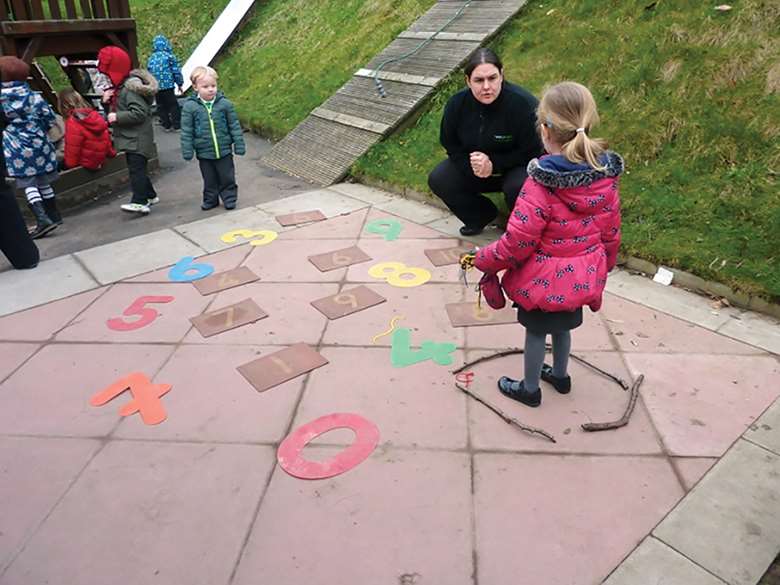Programme makes pre-schoolers champions at maths
Nina Jacobs
Tuesday, November 27, 2018
Programme provides training to improve childcare practitioners' maths skills.

- Staff then build learning about maths into everyday activities.
- Analysis shows children in the scheme had better maths skills than peers.
ACTION
An online learning programme to help maths teaching in early years settings has been praised for achieving academic progress particularly among disadvantaged groups of children.
The Maths Champions programme, designed by the National Day Nurseries Association (NDNA), was trialled in 108 nurseries mainly in areas of deprivation over a 15-month period from May 2016.
An independent evaluation carried out by the Education Endowment Foundation (EEF), which funded the programme, found it had improved the mathematical abilities of both children and nursery staff.
Stella Ziolkowski, NDNA's director of quality and training, says the programme was developed in response to the government's drive for level 3 practitioners to achieve GCSE maths grade C or above before they could be counted in level 3 Early Years Educator ratios.
In addition, Ziolkowski says Early Years Foundation Stage Profile results in maths were one of the areas of lowest attainment, most noticeably for children in areas of deprivation and minority groups such as travellers.
"Maths is a huge barrier to some practitioners and we wanted to help them to overcome these issues and retain them in the sector," she says.
The rationale behind the Maths Champions programme is that it supports children and staff by embedding maths into play and activities. It is delivered by maths leads at NDNA who work with and support the nominated "maths champion" in the individual early years setting to improve the skills levels of staff and review the environment and activities.
Ziolkowski says the programme needed to be as accessible as possible for the sector and as the vehicle for delivery is online and via use of video conferencing there is no need for participants to leave their own setting for training.
The programme offers a range of resources - such as room plans and a key skill builder assessment tool - that enable settings to make improvements both to practitioners' skills as well as the way they support children's maths development.
In addition, Ziolkowski says activity ideas that are provided to maths champions are inexpensive and draw on natural resources.
"This is really important, not only to ensure there are no barriers to participation but also because this is what children see every day," she explains.
"Maths is all around us in everything we do and it should be no different when practitioners are planning for children's development."
Parents are also asked to share Maths Champions' activities with their children at home which could be as simple as a sorting activity using resources such as different coloured and patterned socks and gloves.
"This can support children's development in counting, estimating, sorting, problem solving and calculating. This can be easily recreated at home at no additional cost to parents," says Ziolkowski.
Teeny Tots Day Nursery in Hessle, Hull has benefited from the Maths Champions programme since it was introduced to its staff and children last year.
"We use a lot of natural resources like pine cones, conkers and ask the children to do things like collect leaves when they go for a walk," says room leader Natasha Simpson.
She says packs were made up for staff to deliver different activities as well as for parents to take home, based on themes which would change each week.
"I think it has made a difference particularly for the older children as they enjoy doing maths activities and are interested in it," she adds.
IMPACT
The EEF evaluation used a randomised controlled trial which saw 108 nurseries randomly allocated to take part or continue with their standard provision.
Ziolkowski says primary analysis suggested children on the programme made an average of two months' additional progress in maths, compared with those not involved.
"Initial results suggest the overall quality of maths provision in nurseries was improved through Maths Champions," she adds.
Secondary analysis carried out through an Early Child Environment Rating Scale showed a higher maths score for settings in the intervention group than those in the control group.
"Nurseries that took part in the programme were positive about the outcomes which have not only helped to improve children's potential but also staff confidence in their maths abilities," she adds.




